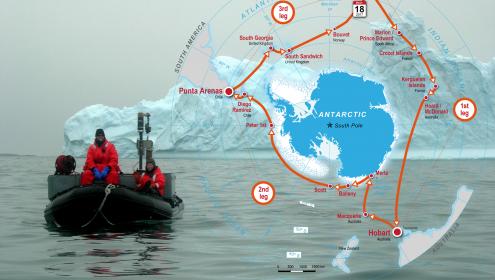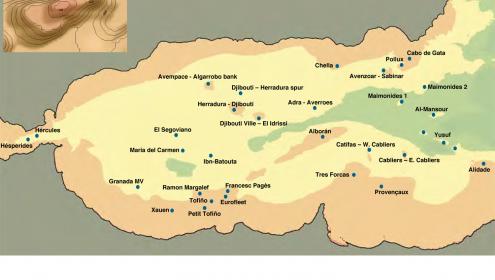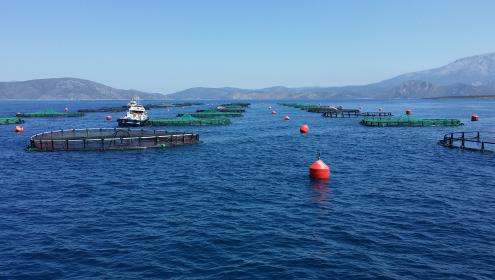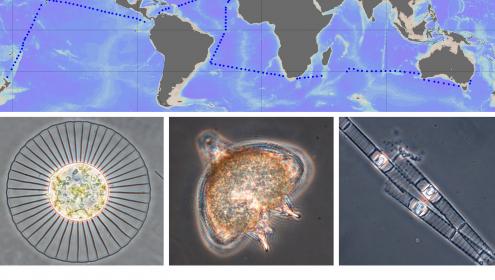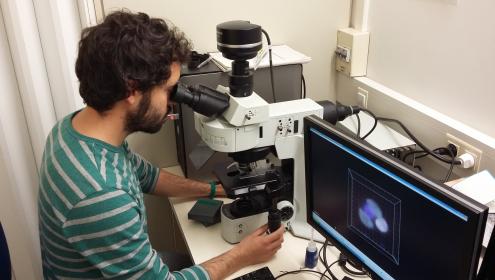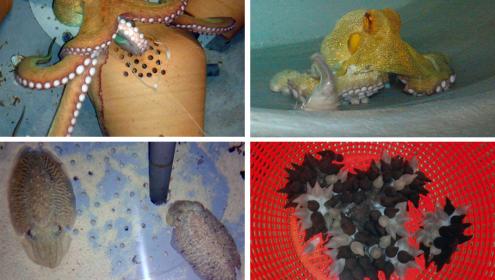LATEST TOPICS
Scientific news
A research project led by Rafel Simó, of the Department of Marine Biology and Oceanography, has been selected for the Antarctic Circumnavigation Expedition (ACE), an initiative of the recently created Polar Swiss Institute. From December 2016 to March 2017, scientific teams from all over the world will board the Russian research ship Akademik Treshnikov for this expedition around Antarctica.
Located in the southwestern Mediterranean, the seamount has been named after Francesc Pagès in memory of the ICM scientist, biologist, and expert in gelatinous plankton and jellyfish. This seamount was mapped during the SARAS international campaign, on board of the Ramon Margalef vessel, and is included in the Atlas of the Mediterranean Seamounts and Seamount-Like Structures, recently published by the International Union for Conservation of Nature.
These days takes place in Palma de Mallorca the initial coordination meeting of the new international project CERES, which pretends to go in depth in the knowledge about the climate change impact on most important fishes, crustaceans and shellfishes populations in Europe, its habitats and the economic activities that depend on these species.
A study conducted by researchers at the Department of Biology and Oceanography of the ICM provides new clues about the distribution of phytoplankton in the oceans. The samples were collected during the Malaspina expedition, in 145 stations located around the tropical and subtropical belt of the Atlantic, Indian and Pacific oceans. "This is a work performed along an extensive circumnavigation of the world's oceans that includes relatively understudied areas", says Marta Estrada, lead researcher of the study, recently published in the journal PLOS One.
A study led by researchers of the Institute of Marine Sciences (ICM) depicts the close symbiosis relationship between two microscopic marine organisms. In this relationship, cells of cyanobacteria live in symbiosis within unicellular algae, larger than the former ones, and both exchange nutrients. According to the results, this relationship is maintained since 90 million years ago and plays a key role in the nitrogen cycle in the oceans. The work is based on data from the Tara Oceans expedition and has been published in the journal Nature Communications.
Cephalopods are a group of molluscs including species like the octopus, squid and cuttlefish, which have been recently included in the European Directive on the protection and management of experimental animals for scientific purposes. This is a significant advance in the field of animal science laboratory since it is the only group of invertebrates included in this directive and represents an entire class of molluscs with about 800 described species.
